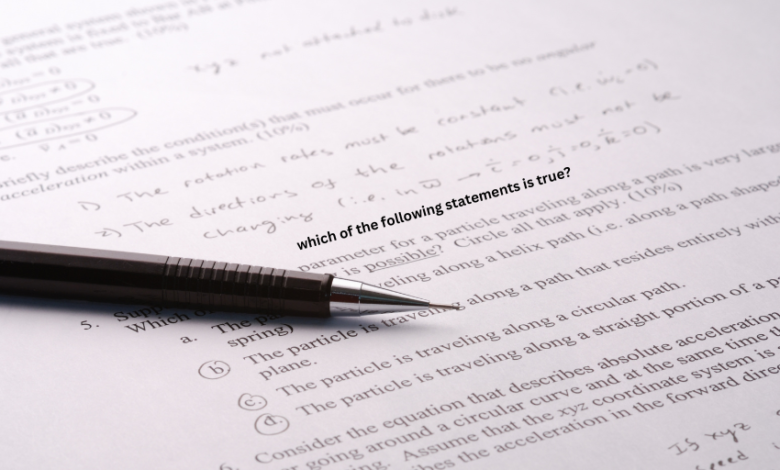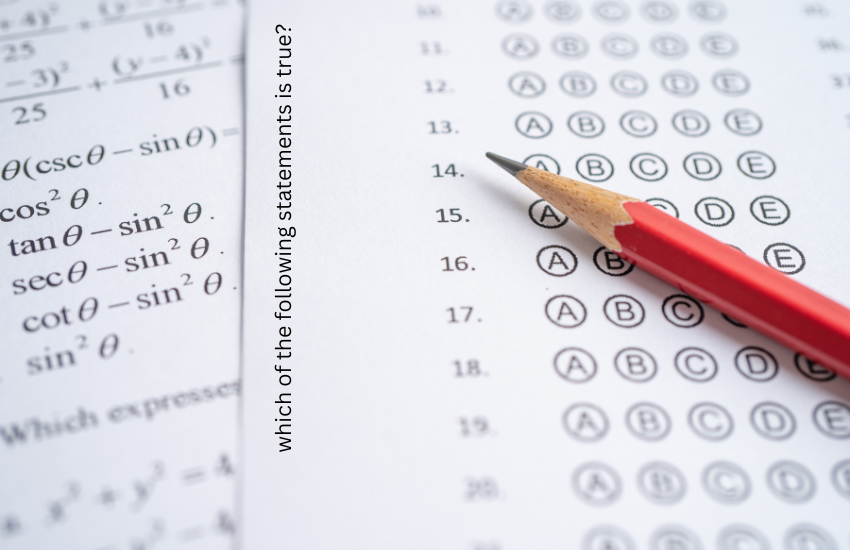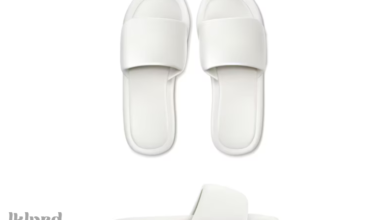Which of the following statements is true?

Understanding the Question
First, let’s break down what it means to determine the truth of a statement. Essentially, it’s about evaluating the accuracy and reliability of information. This involves questioning the source, context, and evidence supporting the statement.
Critical Thinking and Logic
Critical thinking and logic are your best friends when it comes to evaluating statements. Logic helps you assess whether the arguments presented are coherent and free from fallacies. For example, if someone claims that “all cats are animals, and some animals are dogs, therefore some cats are dogs,” they’re committing a logical fallacy. Spotting such errors is key to discerning truth.
Fact-Checking
Fact-checking is essential in today’s information age. Reliable sources and evidence are crucial in verifying the truth of a statement. Websites like Snopes, FactCheck.org, and even Google’s Fact Check Tools can help you verify claims.
Common Contexts for True Statements
True statements can be found in various contexts:
- Academic Context: Peer-reviewed journals and academic publications are often reliable sources of truth.
- Media and Journalism: Established news outlets with a history of integrity tend to provide more reliable information.
- Social Interactions: Personal anecdotes and eyewitness accounts can be true, but they require careful consideration and corroboration.
Evaluating Academic Statements
When it comes to academic statements, peer-reviewed research is a gold standard. These studies have undergone rigorous evaluation by experts in the field. However, it’s still essential to understand the methodology and potential biases in research.

Assessing Media Statements
Reliable news sources are typically those with a long-standing reputation for accuracy. Yet, even reputable sources can occasionally err. Being aware of media biases and cross-referencing information can help ensure the accuracy of the statements you encounter.
Truth in Daily Conversations
In everyday life, discerning truth can be tricky. People often share information based on personal beliefs or incomplete knowledge. It’s important to approach such statements with a healthy dose of skepticism and seek additional evidence when necessary.
Examples of True Statements in Different Contexts
- Academia: “Water boils at 100°C at sea level.”
- Media: “The earth orbits the sun.”
- Daily Life: “Eating a balanced diet is beneficial for health.”
Misconceptions and Myths
Misconceptions and myths are prevalent. For instance, many believe that humans only use 10% of their brains, a myth debunked by neuroscientists. Understanding how such myths propagate helps in debunking them.
Case Studies
- Historical Examples: The belief in a flat Earth was debunked by ancient Greek astronomers.
- Modern Misinformation: The spread of fake news during elections showcases the impact of misinformation.
The Role of Education in Understanding Truth
Education plays a vital role in teaching critical thinking and media literacy. Schools and educational programs can equip individuals with the skills needed to discern truth from falsehood.
Technological Aids in Determining Truth
Technology offers tools like fact-checking apps and AI-powered verification systems to help determine the truth. However, technology is not infallible and should be used as a supplement to critical thinking.
Conclusion
In conclusion, discerning the truth of statements is a skill that requires critical thinking, fact-checking, and a healthy skepticism. By practicing these skills, you can navigate the complex landscape of information with confidence and clarity.
FAQs
How can I improve my critical thinking skills?
Engage in activities that challenge your reasoning, such as puzzles, debates, and reading diverse viewpoints.
What are some reliable sources for fact-checking?
Websites like Snopes, FactCheck.org, and PolitiFact are excellent resources.
How can I teach my children to discern true statements?
Encourage them to ask questions, verify information, and think critically about the sources they encounter.
Why is it important to question statements?
Questioning helps prevent the spread of misinformation and allows for more informed decision-making.
Can technology always be trusted for fact-checking?
While technology is helpful, it should complement, not replace, critical thinking and thorough verification.



